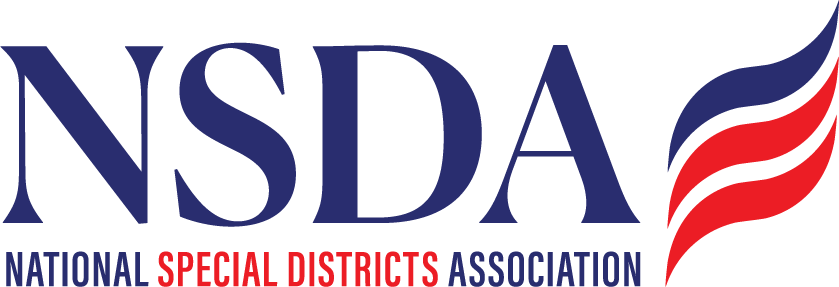Federal Legislative Update, Week of October 6, 2025
House and Senate Action
House
House Speaker Mike Johnson (R-LA) has cancelled votes for the week.
Senate
The Senate is scheduled to vote this evening on whether to advance the House-passed stopgap funding bill, which would reopen federal agencies and keep them operating through November 21. This will mark the fifth time the chamber has taken up the measure. So far, only three Senate Democrats have supported the GOP measure, and there are no signs of additional Democratic votes at this time.
Later in the week, the Senate is expected to take up a War Powers Act resolution in response to recent U.S. military strikes on cartel boats allegedly carrying illegal drugs into the country. The resolution would require congressional authorization for U.S. military action against non-state actors, setting up a debate over the scope of executive branch authority for overseas operations. A vote on the measure could come as soon as Wednesday.
Shutdown Update: No Progress
Negotiations to end the federal government shutdown remain at a standstill, with no meaningful progress over the past week. Both parties continue to hold firm, and key deadlines for federal employee pay are approaching.
The first missed paycheck for many federal employees is expected this Friday. Another significant deadline is October 15, when active-duty military personnel could also miss their pay, if Congress doesn't act. Historically, missed pay for service members has been one of the most politically sensitive consequences of a shutdown, often prompting heightened pressure on lawmakers to reach a resolution. The approaching military payday is viewed as a key flashpoint that could shift political dynamics if the stalemate continues.
The White House has also signaled the possibility of mass layoffs and rescinding additional federal funds as the shutdown continues. However, Democrats have dismissed the layoff threats as legally questionable, arguing that any such actions would likely face swift legal challenges.
Meanwhile, talks remain deadlocked over the extension of enhanced Affordable Care Act premium subsidies, which are set to expire at the end of the year. Democrats have said they will not support reopening the government without a firm agreement on extending the subsidies, while Republicans have maintained that they will not negotiate on extending the insurance subsidies while the government is shut down.
Relevant Hearings & Markups
Senate Judiciary Committee
Tuesday, October 6 |9 a.m. ET | Attorney General Pam Bondi will appear before the panel for an oversight hearing on the Department of Justice. Hearing Details
Senate Commerce, Science and Transportation
Wednesday, October 8 |10 a.m. ET | The full committee will meet to consider a slate of nominations and legislative proposals, including a bipartisan bill - the PIPELINE Safety Act of 2025 - that would reauthorize the nation's pipeline safety regulator. The panel will also markup legislation (S. 2245) that would reauthorize the National Oceanic and Atmospheric Administration’s (NOAA) Digital Coast Program, which helps coastal communities better prepare for storms, cope with varying water levels, and plan for future development.
Wednesday, October 8 |10:30 a.m. ET | The panel will hold a hearing to examine the federal government’s interactions with technology companies and the extent to which those relationships may have influenced content moderation decisions.
Senate Health, Education, Labor and Pensions
Wednesday, October 8 |10 a.m. ET | The full committee will hold a hearing entitled, "Labor Law Reform Part 1: Diagnosing the Issues, Exploring Current Proposals."
Thursday, October 9 |10 a.m. ET | The full committee will meet to discuss AI's potential to support patients, workers, children, and families.
Additional Events of Interest to Special Districts
Health Care Policy: Prior Authorization Scrutiny
On September 29, Health Affairs hosted an event examining criticisms of insurers’ prior authorization practices, which have come under increased scrutiny from HHS Secretary Robert F. Kennedy Jr. Members of the panel discussed how current prior authorization processes affect access to pharmaceuticals, oncology/cancer care, and opioid use disorder treatment. Special districts operating health clinics, emergency medical services, or behavioral health programs may be impacted by changing federal policies on prior authorization, which affect reimbursement timelines, treatment access, and administrative requirements. More information can be found at healthaffairs.org.
Transportation: Quiet Skies Program Oversight
On September 30, the Senate Homeland Security and Governmental Affairs Committee held a hearing on the Quiet Skies Program, a TSA initiative launched in 2012 that monitors certain air travelers not on watch lists for additional scrutiny. Districts that operate or manage local airports should monitor developments around TSA programs and passenger screening protocols, which can influence local airport operations, security coordination, and community relations. Senate HSGAC Hearing on Quiet Skies Program.
Fiscal Policy: Emergency Spending Loophole
On October 7, the Cato Institute will host a virtual briefing on “The $15 Trillion Emergency Spending Loophole.” Panelists will discuss ways to curb fiscal abuses tied to emergency designations. Changes to emergency spending rules could affect federal funding streams that many districts rely on during disasters and emergencies. For more information, please visit CATO Institute Briefing.
Agriculture & Finance: Farm Credit Administration Meeting
On Thursday, the Farm Credit Administration will hold a meeting on Farm Credit System funding conditions and a proposed rulemaking on loan performance categories and financial reporting. Districts that support agricultural communities or partner with farmers for economic development, water infrastructure, or land management may be affected by changes in agricultural lending standards and credit conditions. More information is availalbe here.
